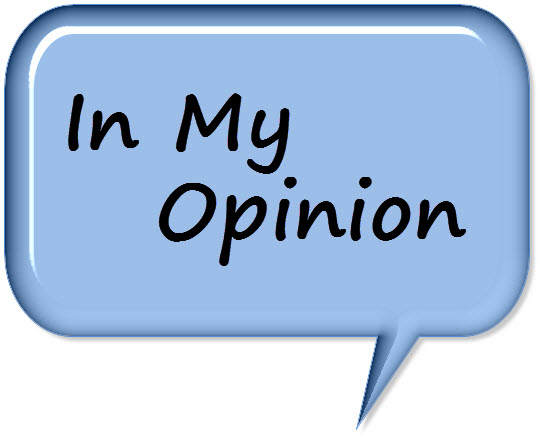
I ran across this and it made me think about what I am doing. Proverbs 18:2. A fool finds no pleasure in understanding, but delights in airing his own opinion.
I am seeking to better understanding social justice by trying to better understand sources of prejudicial behavior. I take pleasure in understanding because it helps me to better pursue justice. I recognize much of what I am saying is my personal opinion, not research (I hope I am not being a fool). My biggest delight in airing my own opinion is — it brings me in touch with friends, many of whom help me in the improvement of my opinions. You will see a good example later in today’s blog.
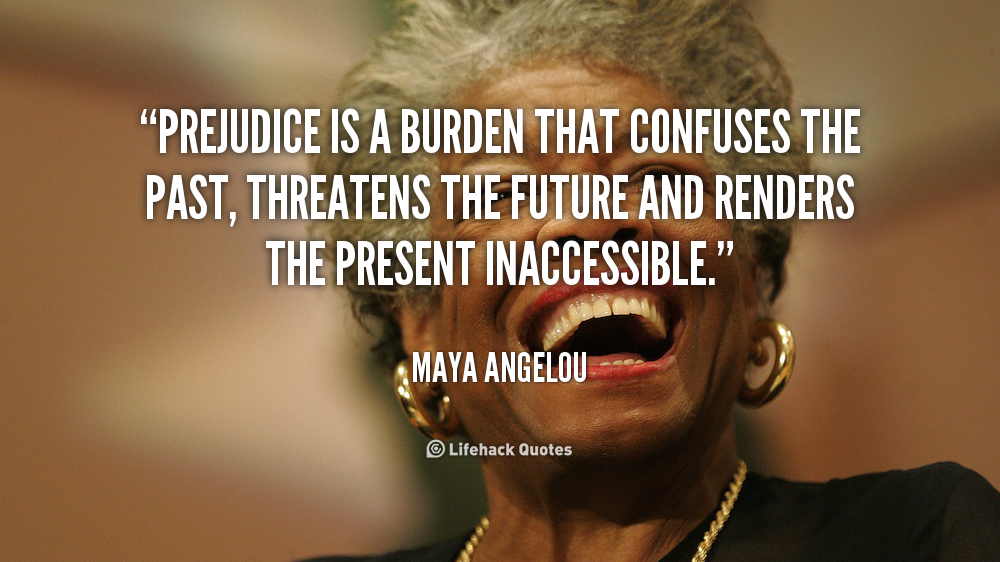
My musings point to my personal view that we are better able to attack social issues if we consider prejudice in a singular manner rather than isolating and compartmentalizing various types of prejudice.
When I adopt the perspective racist behavior, sexist behavior and other issues are instances of a single problem—namely prejudice, then I believe I accomplish several goals: a. I reduce the likelihood of renaming as an explanation of a particular prejudice; b. I can more easily think of prejudice as a state rather than a trait — that is to say — I can change my attitudes; (Some people were uncertain about what I meant about state-trait. States are transient, they can change. Traits are more or less permanent. I say more or less, because surgery or other extraordinary measures might change what otherwise might consider as a trait such as gender. Height is a trait.) and c. I reduce the tendency to compartmentalize a particular prejudice and create us versus them situations. In my mind I am not diminishing the importance of racist or sexist behaviors; rather broaden and deepening the problem of prejudice. I see prejudice as a problem in many, many areas of life.
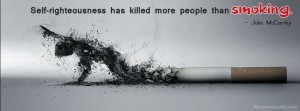
I asked myself one question: Is there anything the various problematic prejudicial behaviors have in common?
Self righteousness was my primary answer. There may be many reasons for prejudice behavior but one very common reason is self-righteousness. When a person or a group, believes they are better than others on the basis of “anything” then they are prone to behave in an inappropriate manner. For race or sex the “anything” is a physical characteristic.” Some people believe they are better than others because of their race or gender. That attitude is what we do not want to develop and if it does develop we want to it changed.
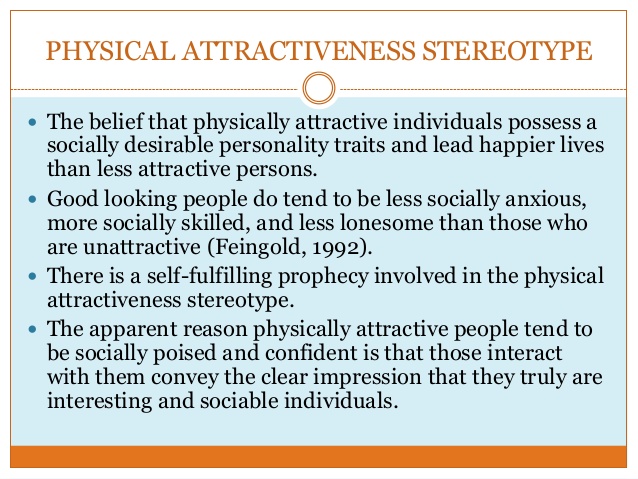
By seeing prejudice as the broad problem I expanded my thinking to include problems with other physical characteristics. Attractiveness is a clear example. Many people believe they are better than others because they are more attractive. The attractiveness prejudice has created deep hurts – just ask an ugly person why they did not get to be Homecoming King or Queen.
I am certain attractiveness is involved in job discrimination. I believe attractiveness plays a major factor in bullying and even suicide. Attractiveness does not have the violent history of racial prejudice, but that does not take away from the fact it can be a serious prejudice that has caused great pain and should be a part of our fight for social justice.
By expanding my view of prejudice, I began to see problems other areas, way too numerous to go over in a single blog. Suffice to say, I realized I have used many things in a self-righteous manner. Consider the following very few items:
1. Do you own anything that in you heart of hearts you think makes you better than others: Your car, your house, clothes, jewelry, particular cell phone, etc? Please hear me carefully, there is nothing wrong with owning nice things—but if you have an attitude it makes you better than others, it becomes a problem,
2. Do you think living in a particular area makes you better than others: Maybe living in a particular city or region, maybe a zip code or a particular neighborhood? Again please hear me carefully, there is nothing wrong with living in a nice neighborhood—but if you have an attitude it makes you better than others, it becomes a problem. If you have doubts about the potential for this to be a problem, just ask a child living in a trailer park, or federal housing if they ever feel discriminated against for where they live.
3.Do you think some accomplishment makes you better than others?
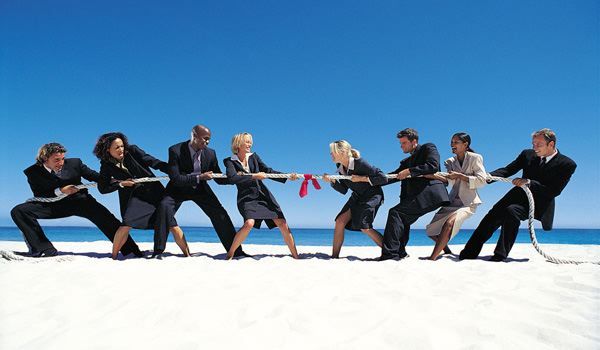
Here it gets interesting — winning a sporting event does in fact mean you are better at the sport than others, BUT it does not make you the better person. Earning an advanced degree, makes you more knowledgeable than others, which is good —but if you have an attitude it makes you better than others, it becomes a problem.
I was moved by a response I received in response to last week’s blog. My friend anticipated my concern that being better in some activity or accomplishment does not make you the better person. His well-stated response was:
- “True sportsmanship – (before, during, and after a competition) – is an expression and demonstration of treating others as equal. Our happiness in beating the rival we hate is exhilarating and fits our culture and proves their inequality to us. Those rare times – sometimes a rival, hopefully, more often times with friends – that we were in spirited intense competitions where there was mutual respect and it was all about the game, those were times of joy.”
Problematic prejudice occurs in many more area than the few I suggest. We are all prejudice. I believe it is better to recognize and work on our prejudices than deny them—the battle is not easy, but it is a battle I can and will fight. Understanding and controlling my behavior, that part of life I can control, is a full time task. I hope you join me in the battle.
I have three questions:
1. What do you see as your major struggle with prejudice?
2. Why do we have this strong need to feel better than others?
3. What can we do to change our prejudice?
I look forward to any responses.
I will stop here. I hope you start to see how deep the problem of prejudice can be in all of us.
You have been patient with my musing — Thank You.
I close with another excellent thought from my friend’s response to last week’s blog and a personal proverb:
- “Seeing others as equals is, in my opinion, counter to almost everything in our culture – despite the aspirations of our founding documents – and runs counter to much of Christianity as it is practiced and taught.”
Jerry’s personal proverb: Blessed are the humble with no need to feel better than others.
Until next week
Jerry
0 Comments